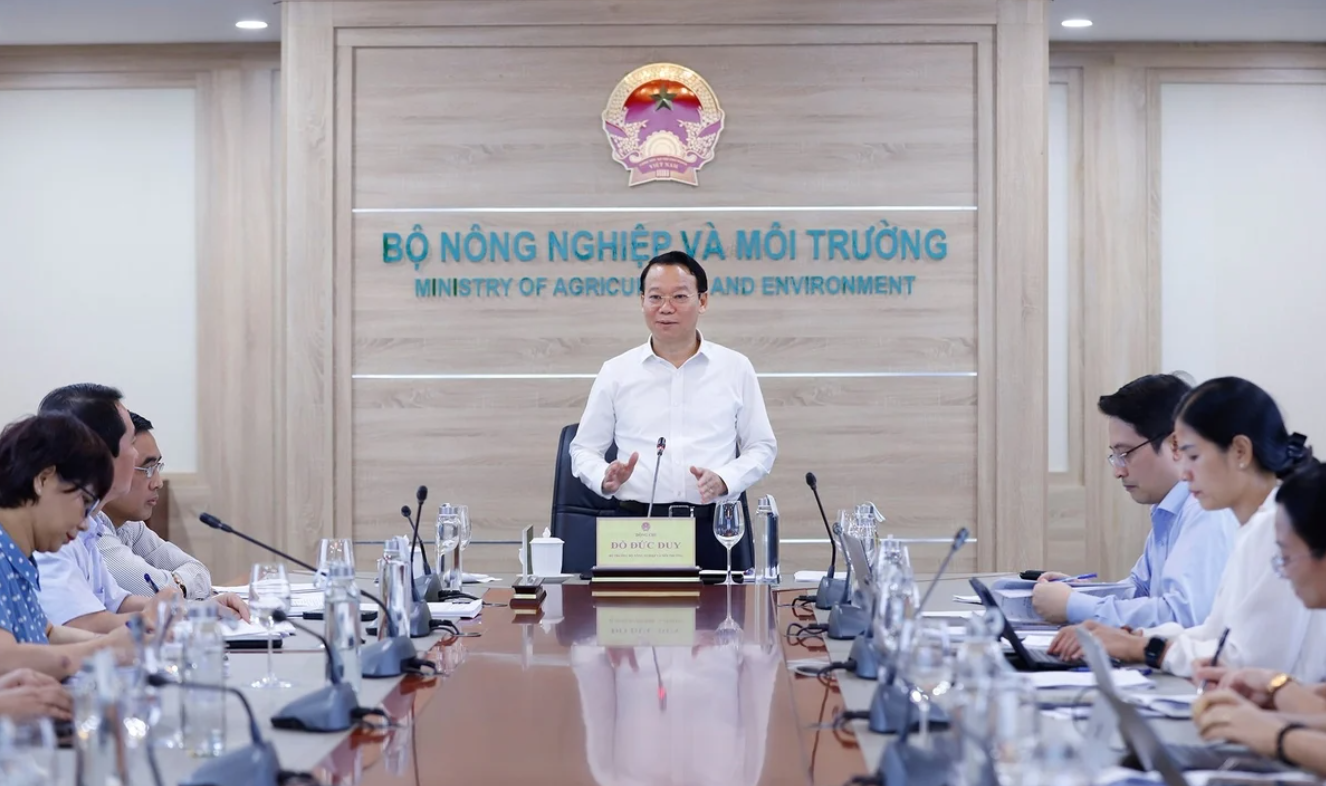On the afternoon of May 9, Minister of Agriculture and Environment Do Duc Duy and Deputy Minister Nguyen Quoc Chi chaired an important meeting to review the draft decree on managing endangered, precious, and rare species and implementing the Convention on International Trade in Endangered Species of Wild Fauna and Flora (CITES).
Speaking at the meeting, the Minister emphasized that the development of this new decree, which consolidates regulations on the management of endangered species, is a necessary breakthrough. It aims to enhance biodiversity conservation and provide a robust legal framework for promoting green and sustainable economic development.
 Minister of Agriculture and Environment Do Duc Duy chaired an important meeting to review the draft decree on managing endangered, precious, and rare species and implementing the Convention on International Trade in Endangered Species of Wild Fauna and Flora (CITES). Photo: Khuong Trung
Minister of Agriculture and Environment Do Duc Duy chaired an important meeting to review the draft decree on managing endangered, precious, and rare species and implementing the Convention on International Trade in Endangered Species of Wild Fauna and Flora (CITES). Photo: Khuong TrungThe decree seeks to unify and streamline various existing regulations that are currently scattered across different legal documents. This integration will create a more transparent, consistent, and efficient management system. The draft clearly defines its regulatory scope, avoiding overlaps with sectoral laws such as the Fisheries Law, Law on Crop Production, and the Law on Plant Protection and Quarantine.
One of the draft’s key highlights is to simplify administrative procedures, reducing time and costs for organizations and individuals involved in the licensing, monitoring, and management of endangered species. Under the proposed system, only one application, one process, and one competent authority will be required for licensing activities related to listed species.
The draft also upholds the principle of sustainable development, encouraging the controlled breeding and reasonable use of rare species. This approach aims to conserve genetic resources while also promoting their economic value and supporting the green economy.
Regarding decentralization, the draft calls for enhanced delegation of authority to local governments, assigning specific responsibilities to improve on-the-ground protection of endangered species. The authority to issue species lists will rest with the Minister of Agriculture and Environment, ensuring timely updates in line with practical conditions and international commitments.
Aligned with the goals of administrative reform under Resolution 66, the draft sets targets to reduce administrative procedures, processing time, and compliance costs by 30%. These reforms are expected to foster a more enabling environment for sustainable development and biodiversity conservation.
Minister Do Duc Duy stated that once enacted, the decree is expected to significantly improve the management and conservation of endangered, precious, and rare species. At the same time, it will create opportunities to expand the bio-economy and circular economy, contributing positively to the national sustainable development strategy.